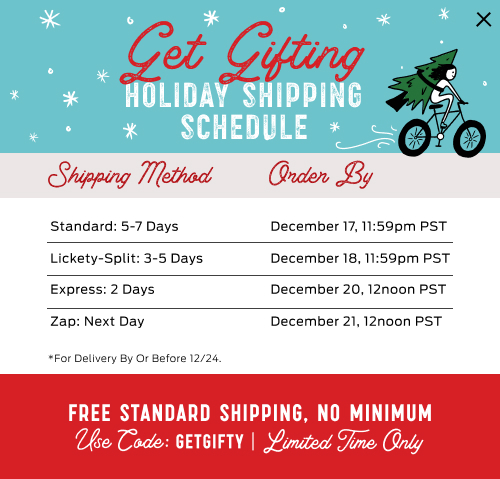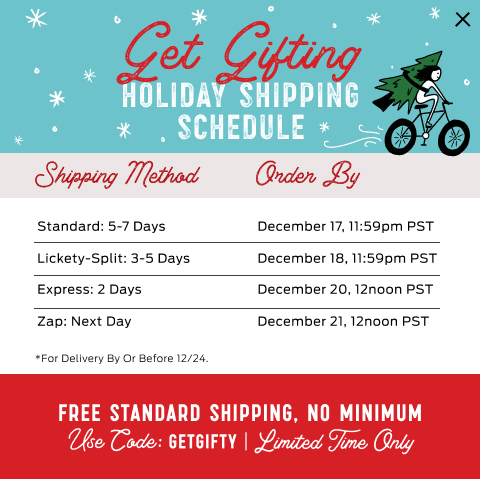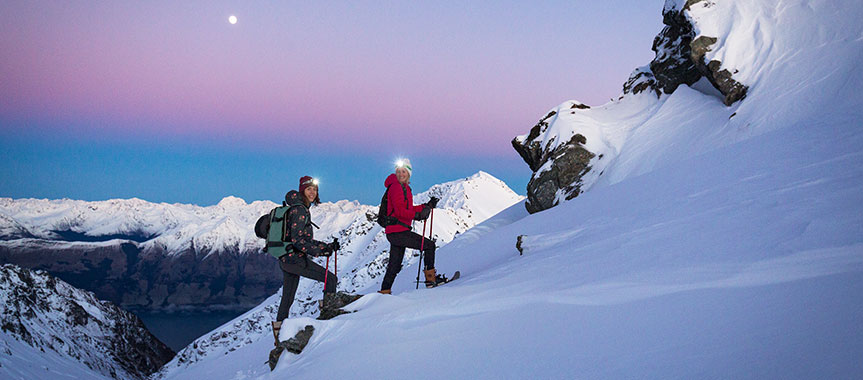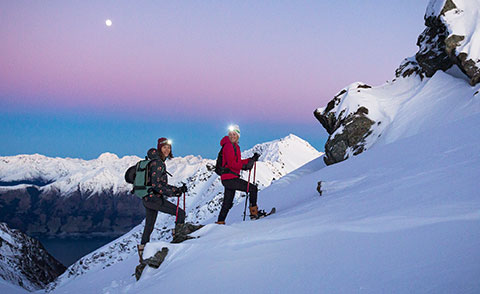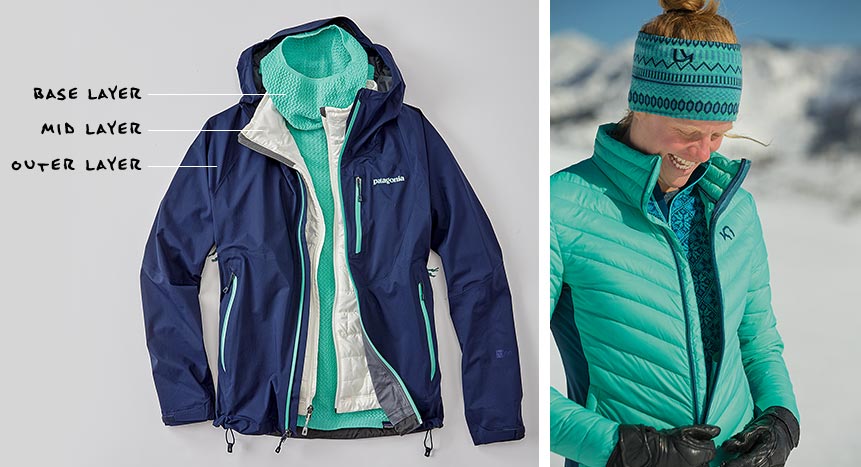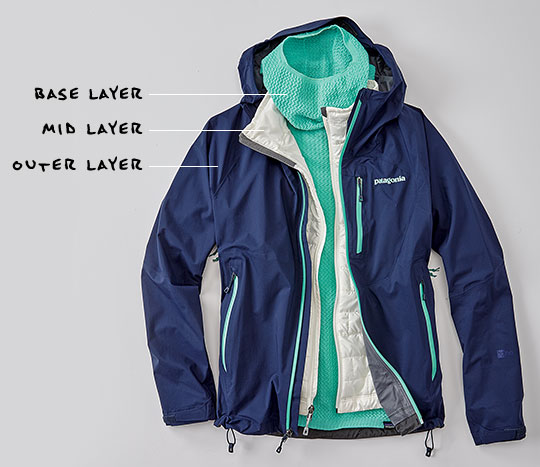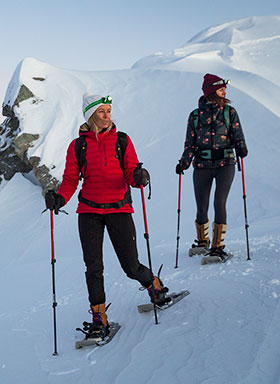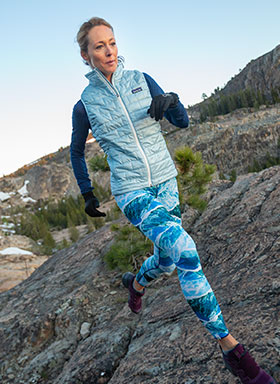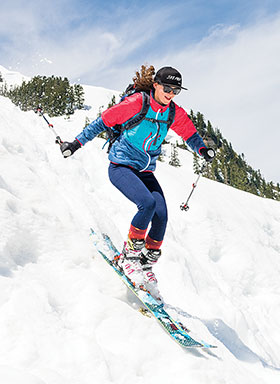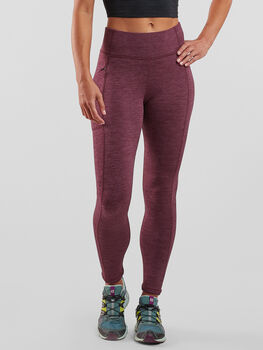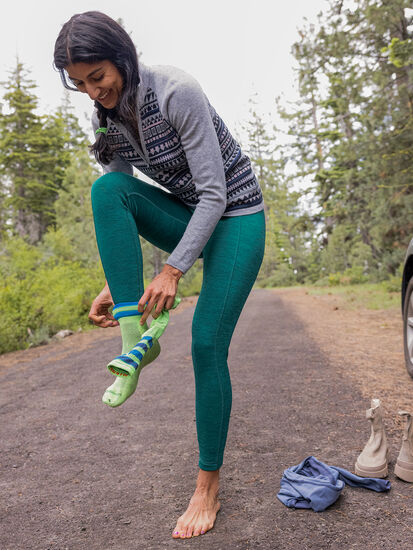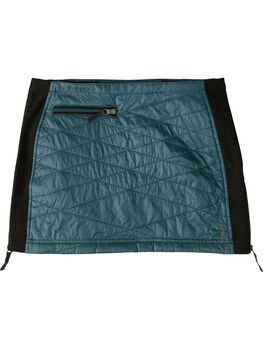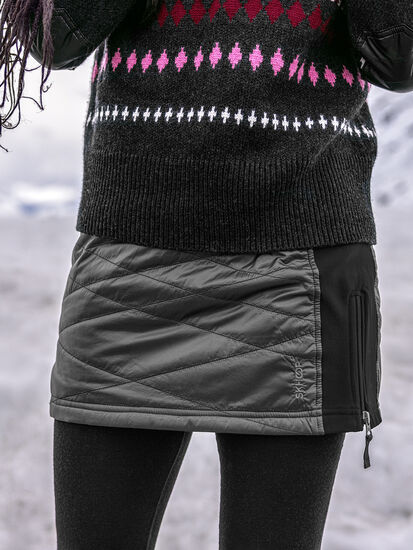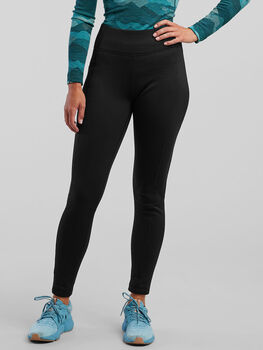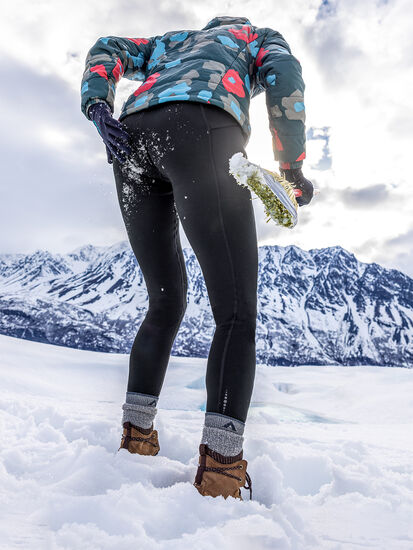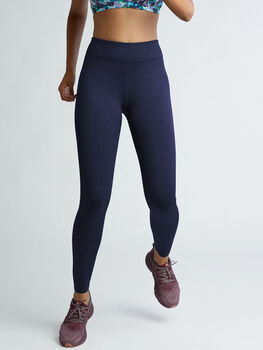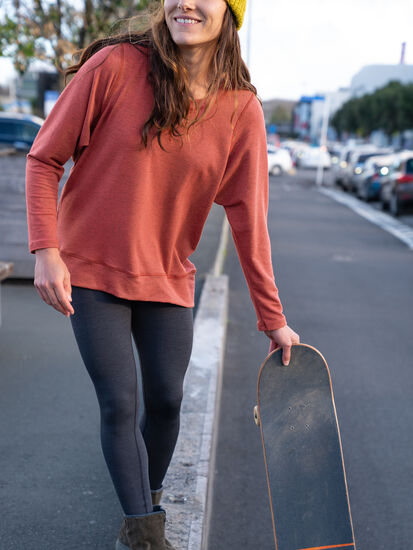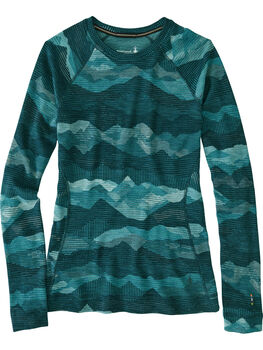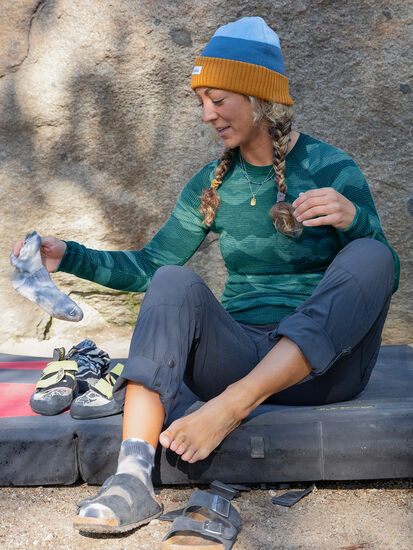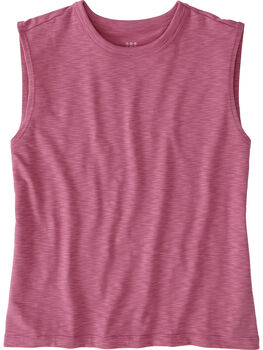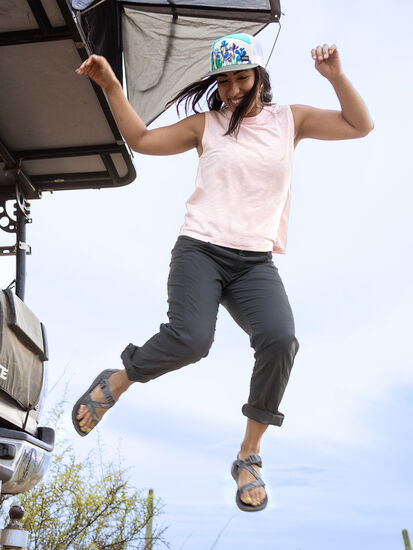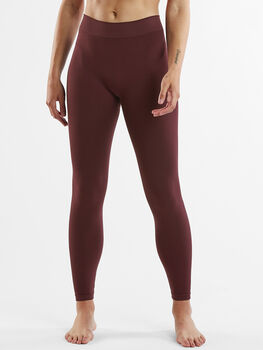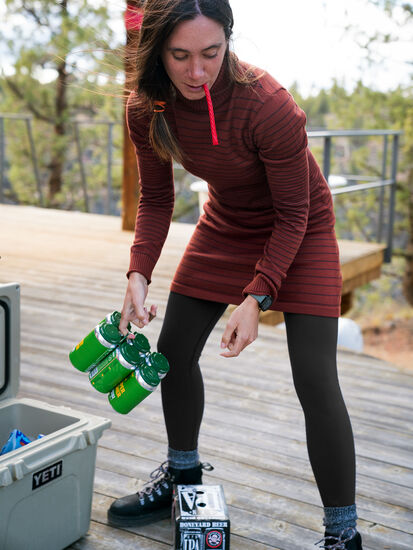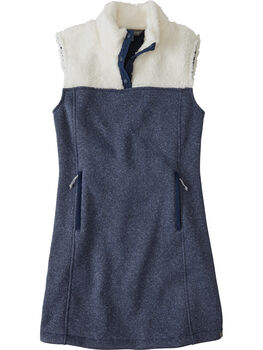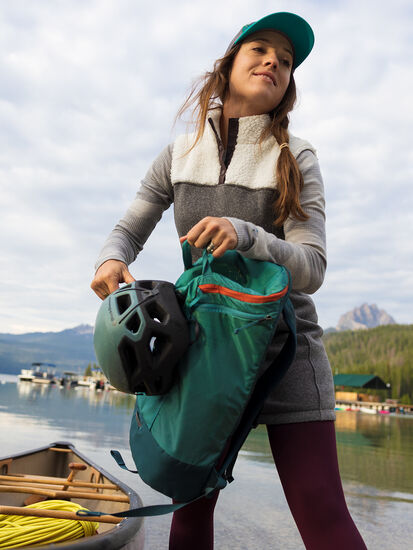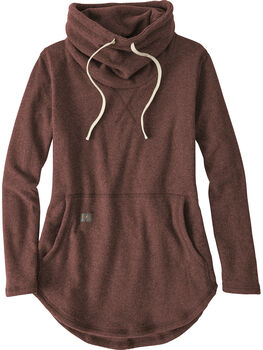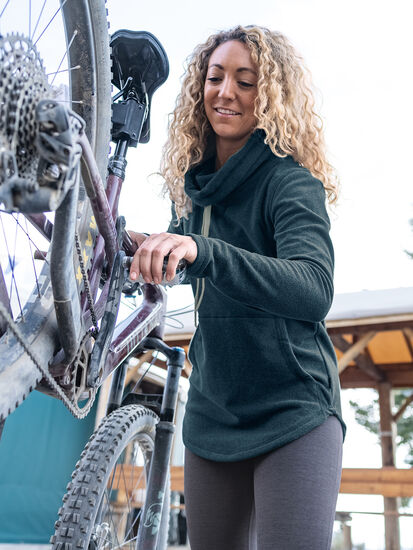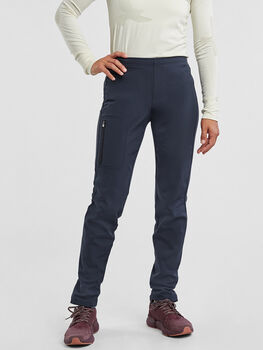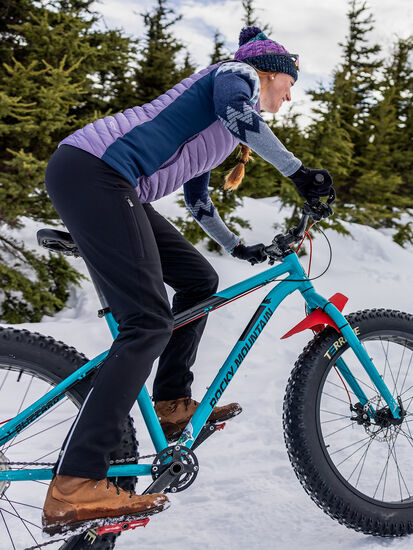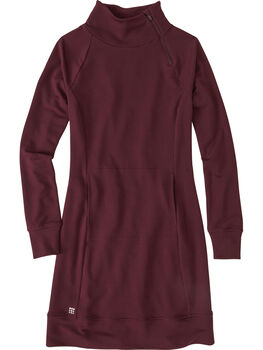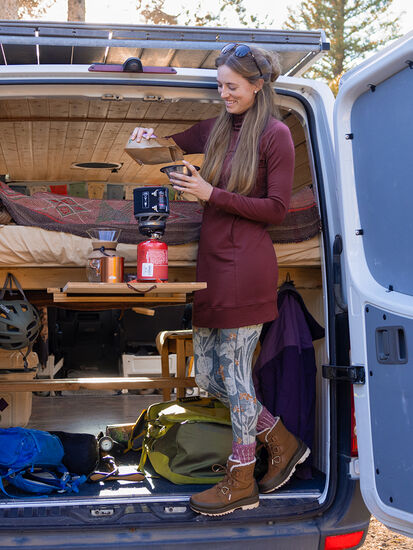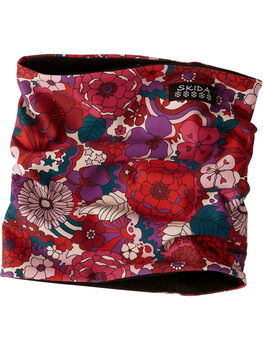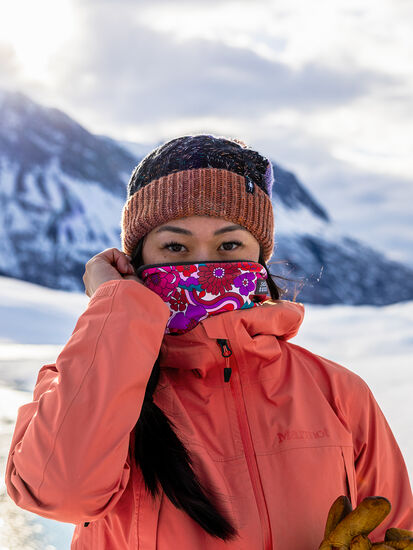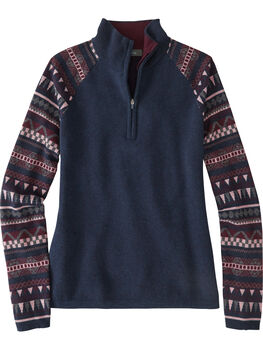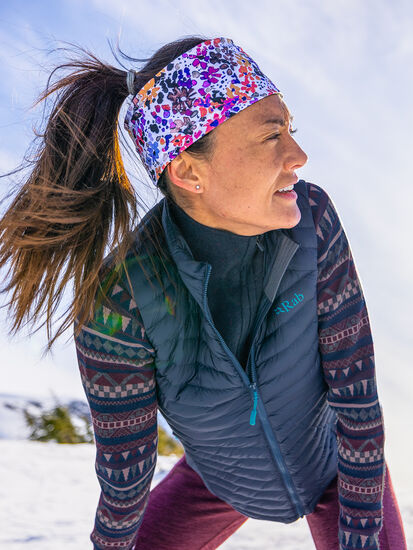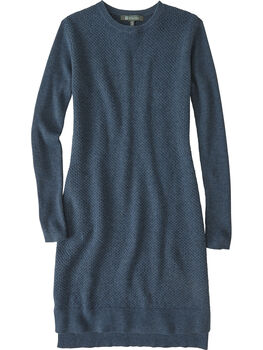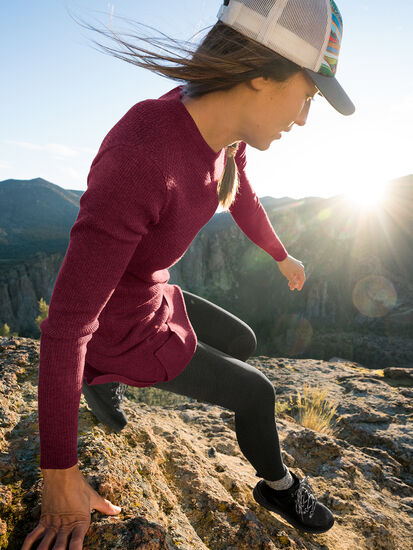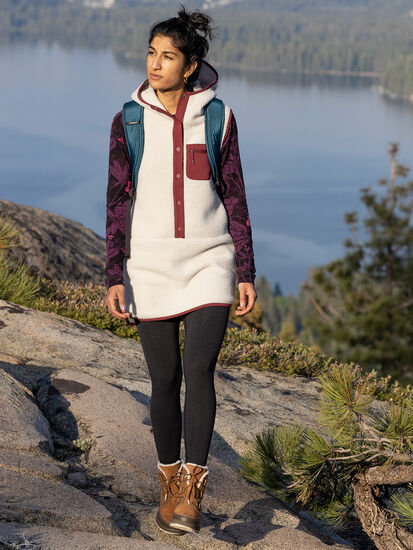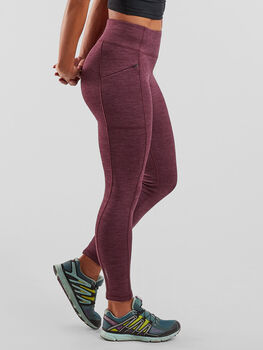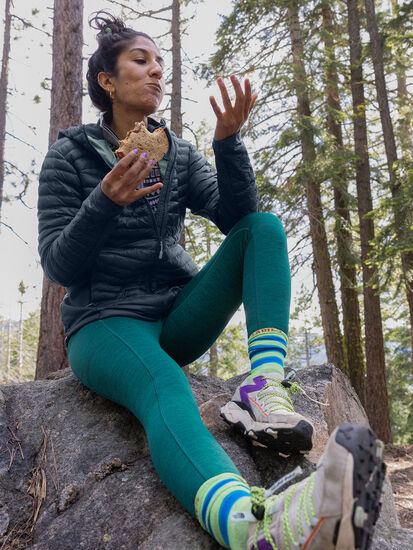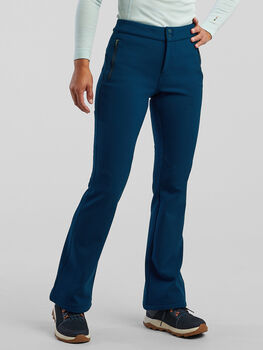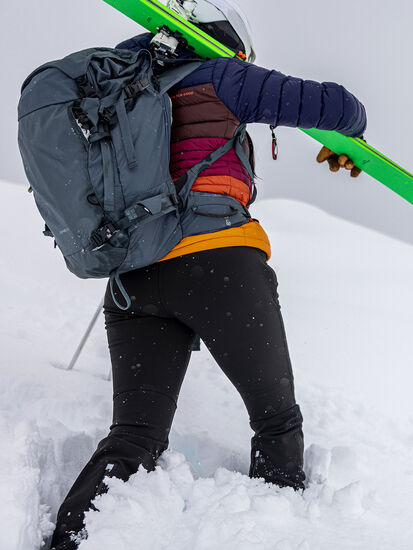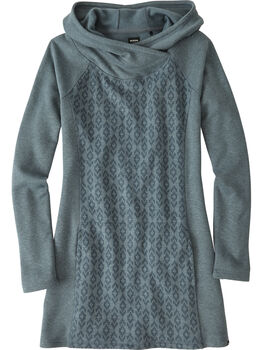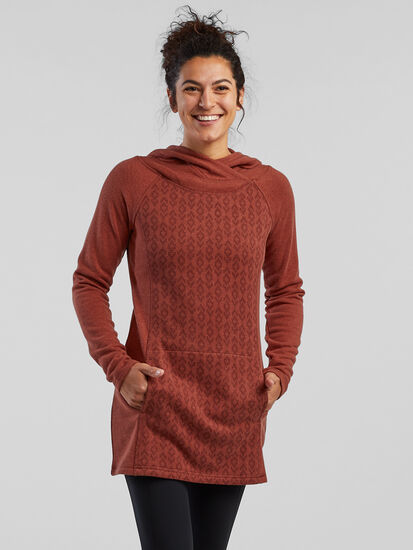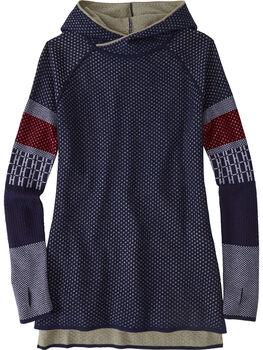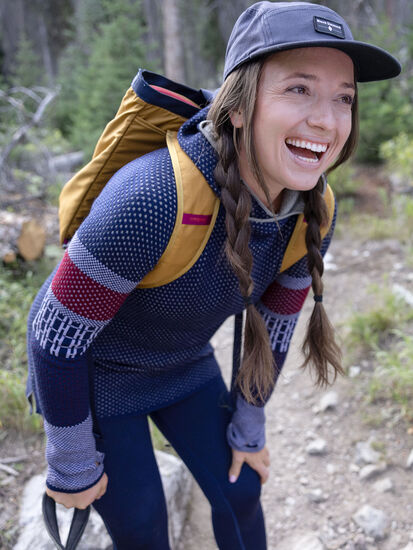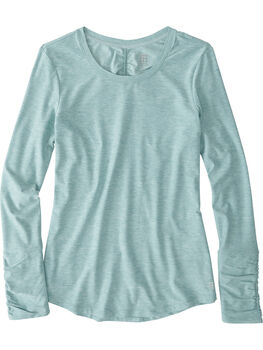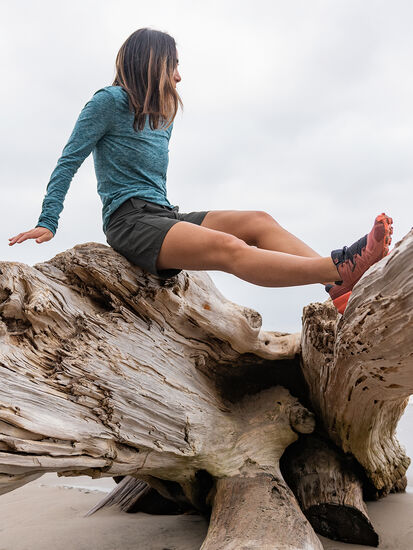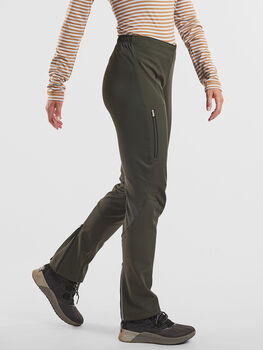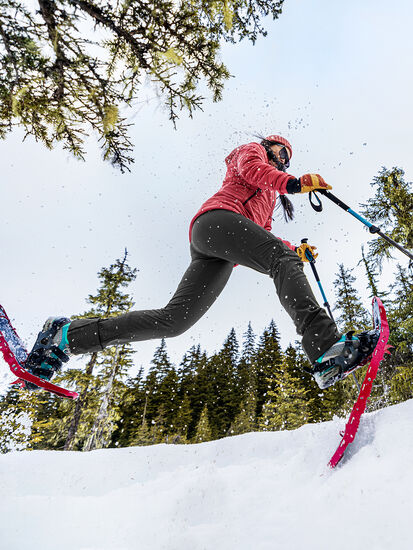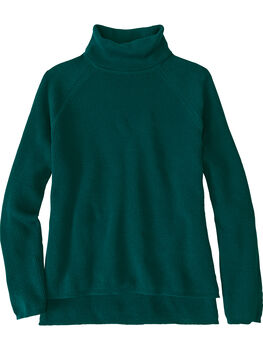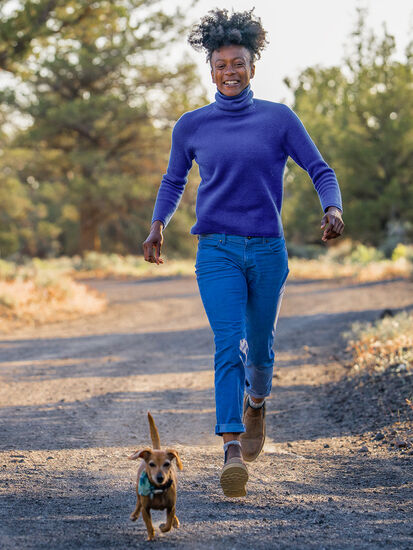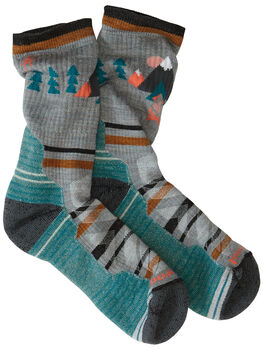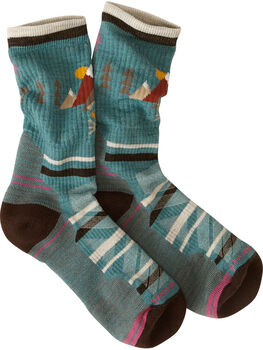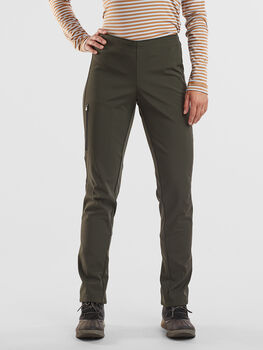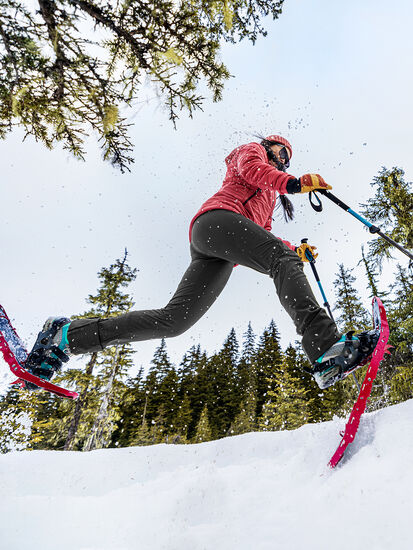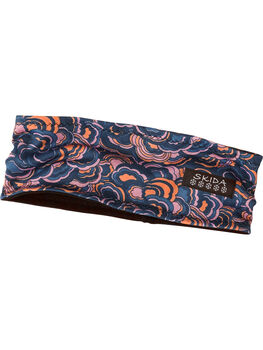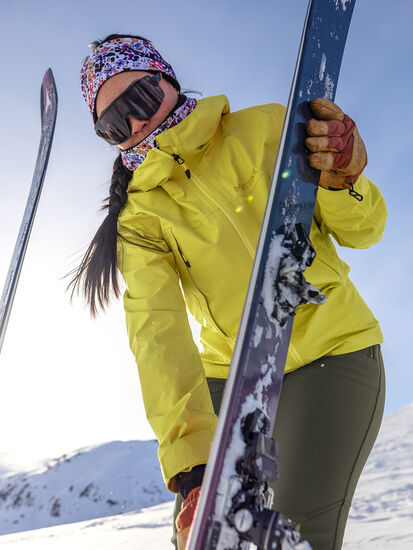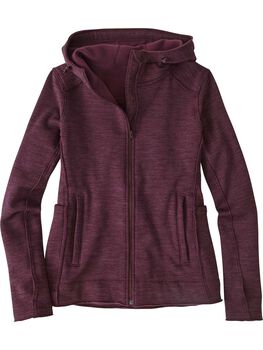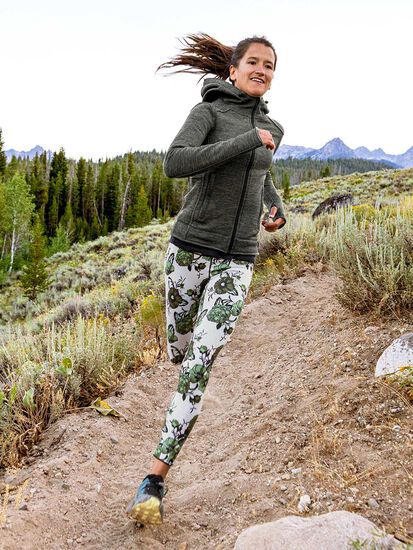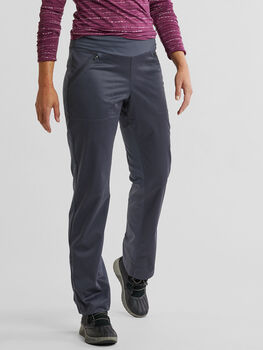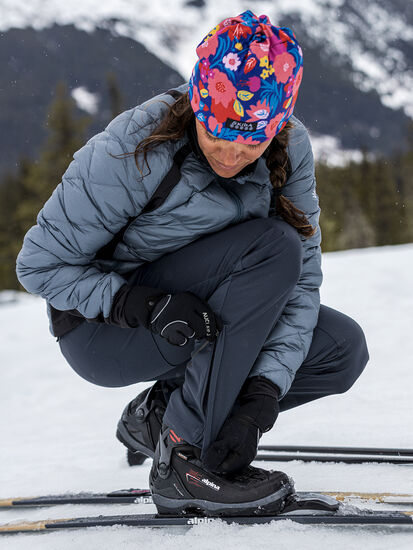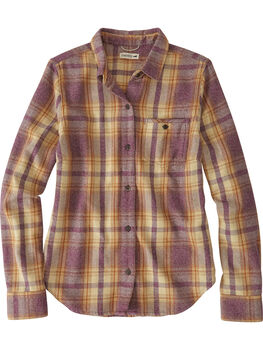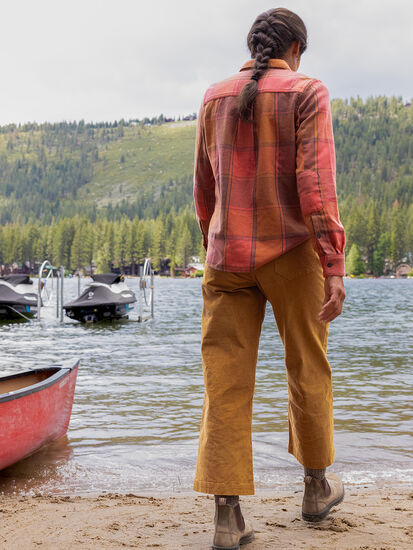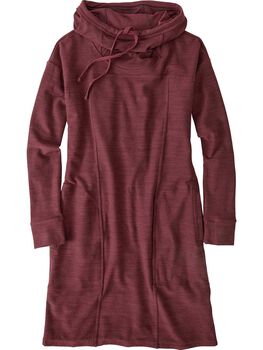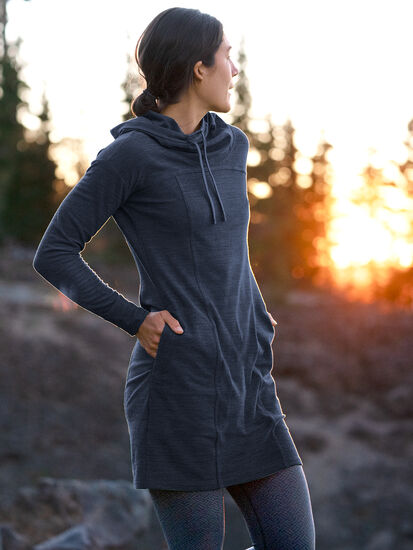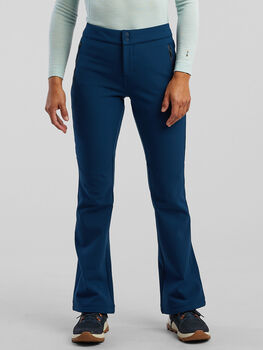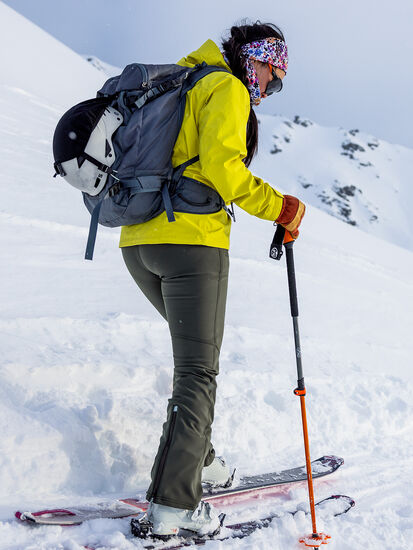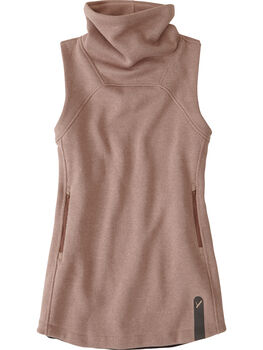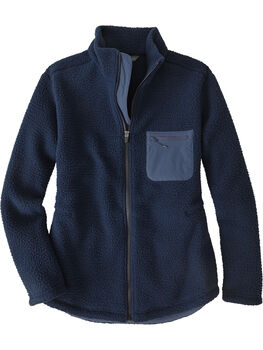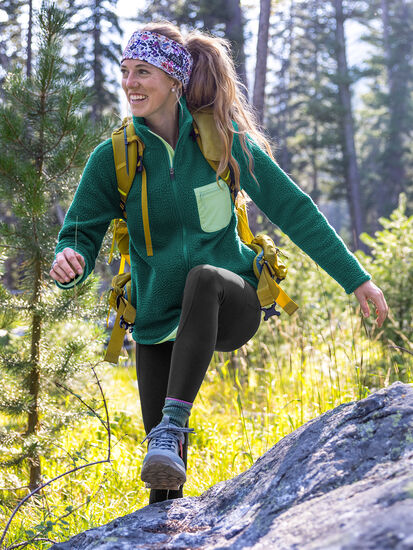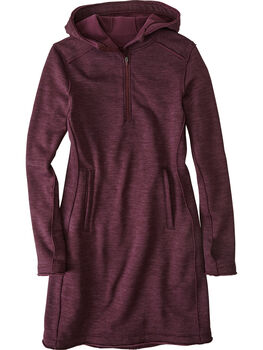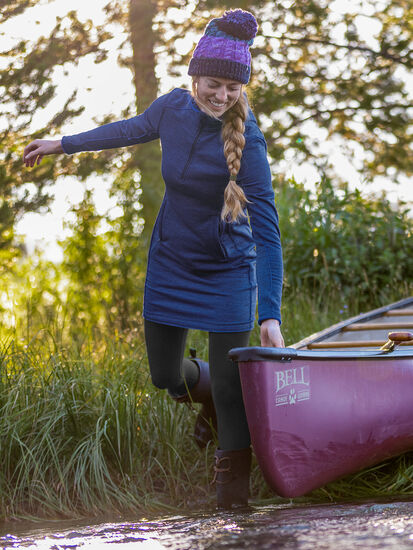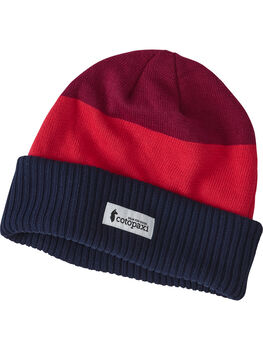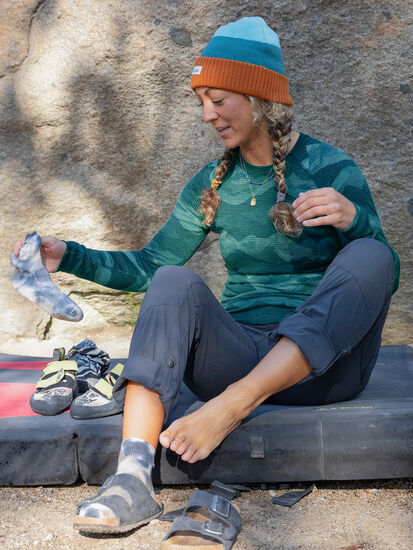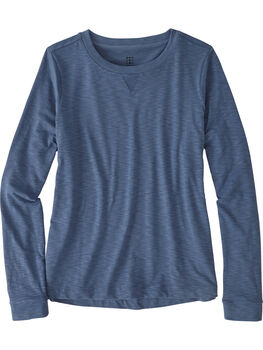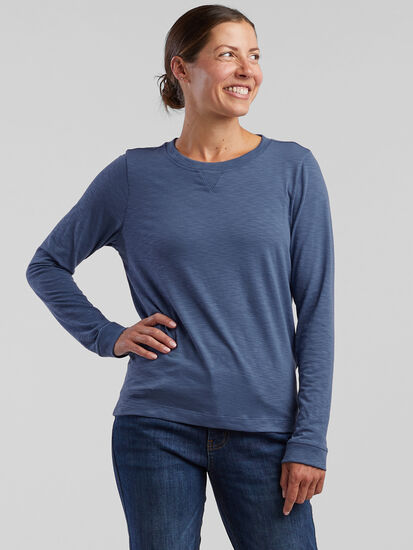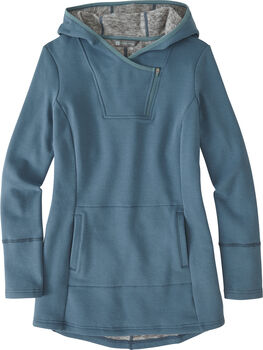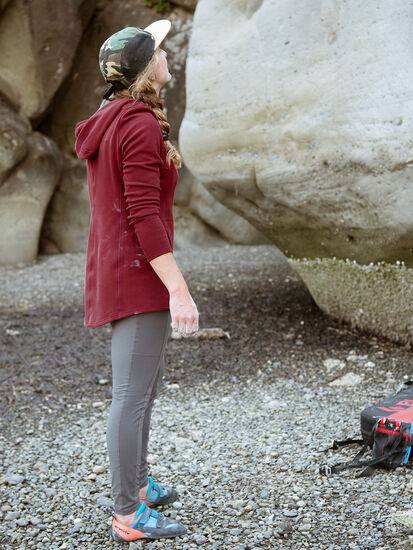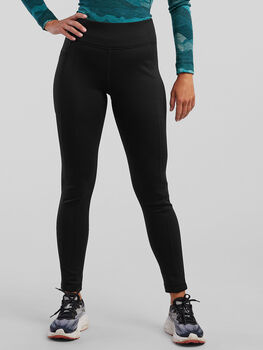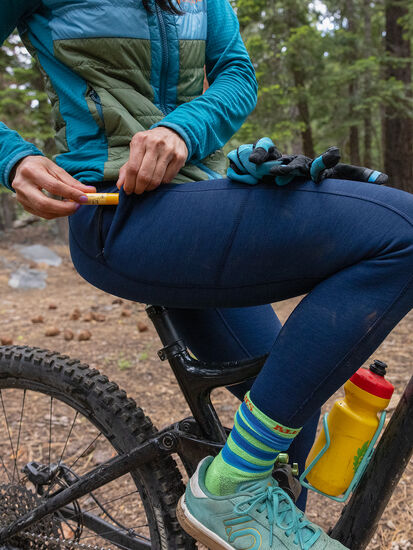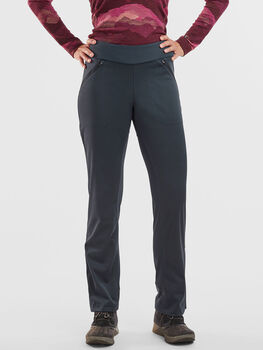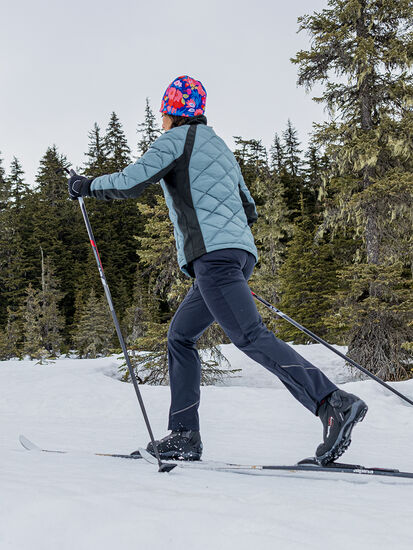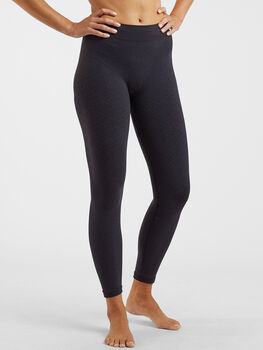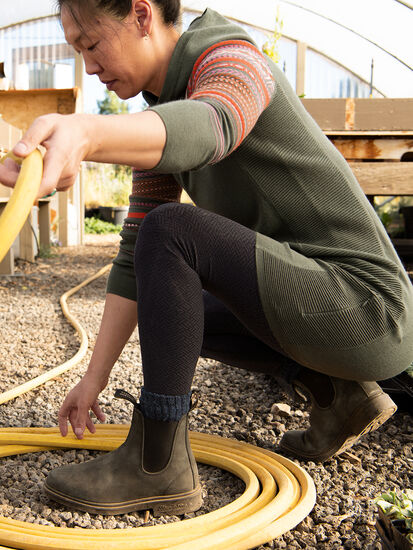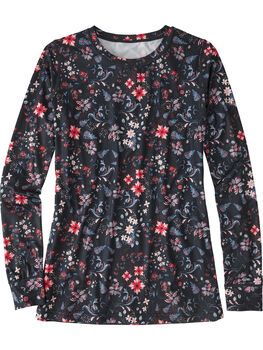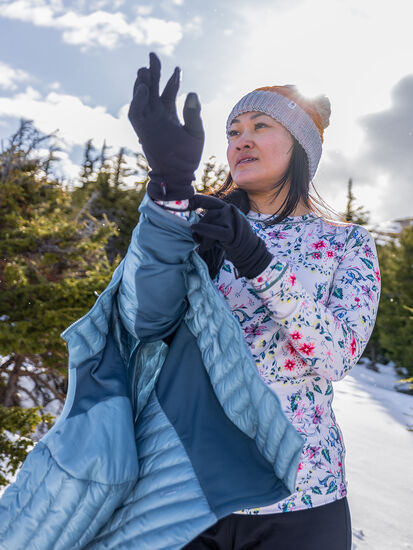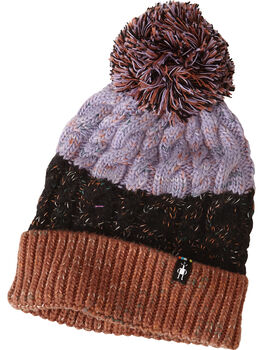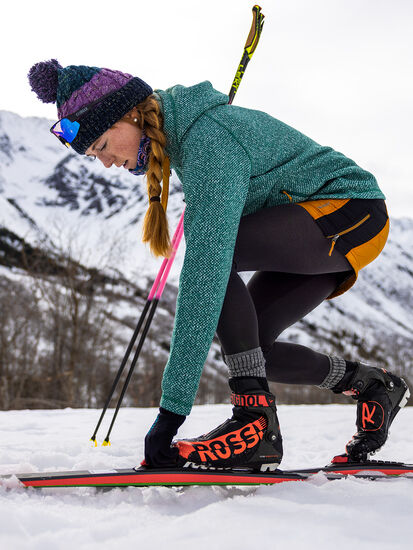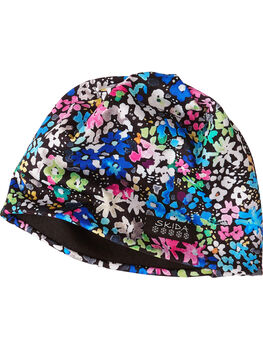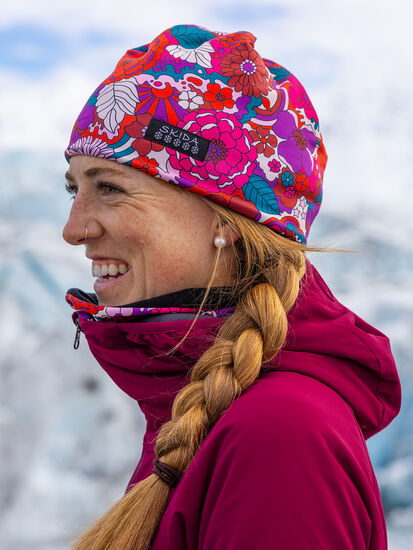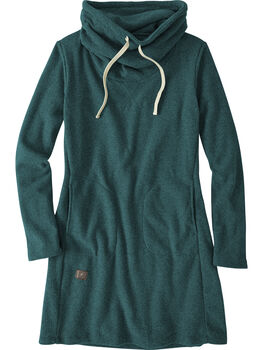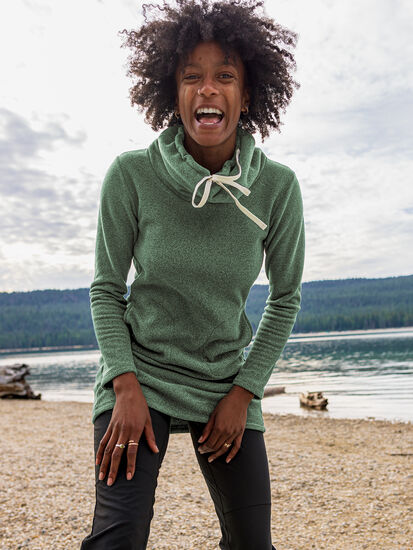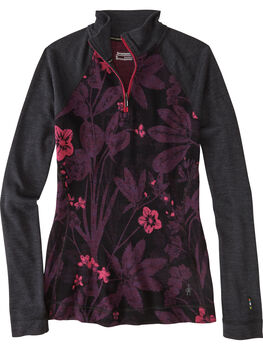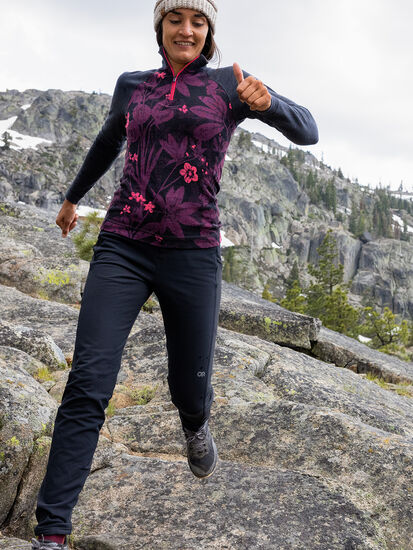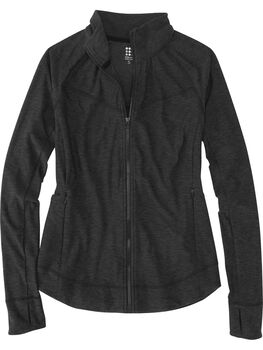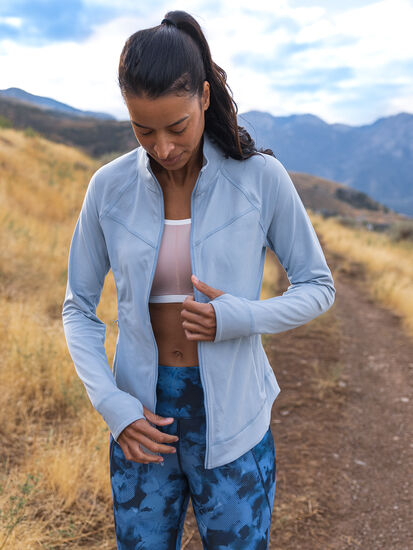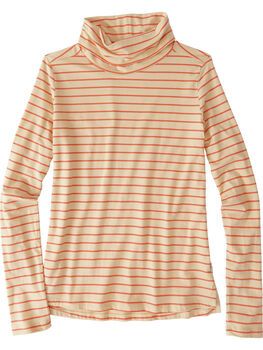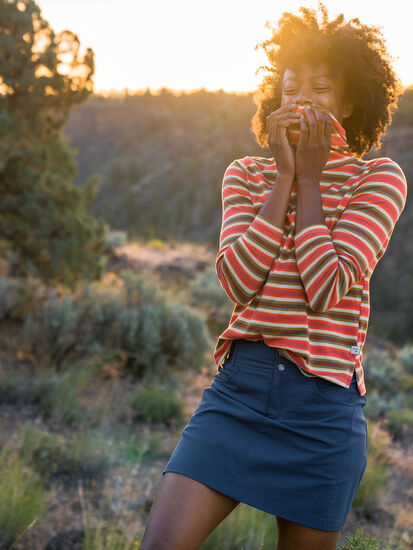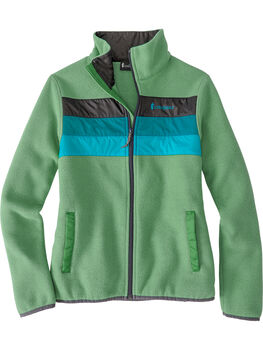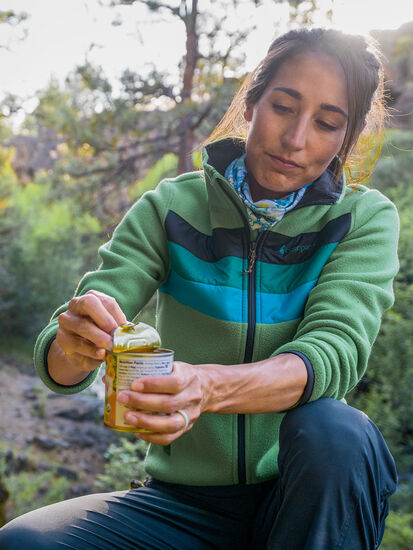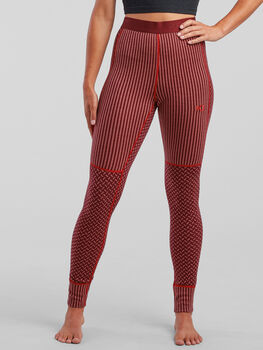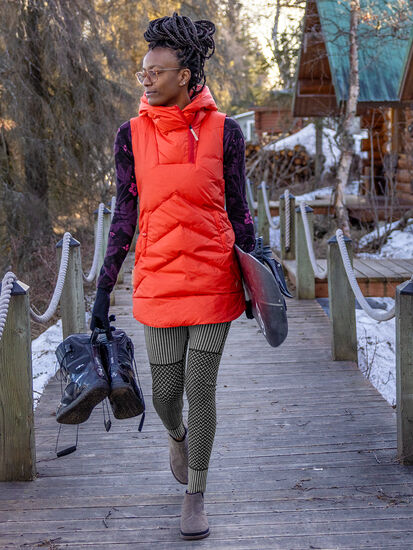The key to staying comfortable, whatever the weather? It’s all about that layer.
Layering clothing well takes a little prep work, but don’t sweat it—we’ve got all the layering basics you
need to know to stay warm, dry and rock any winter adventure that comes your way.
Why Layer Clothes?
Layering clothing for winter helps keep us feeling just right, no matter the forecast—layers can keep us
from being too chilled at the beginning of our workout or too hot in the middle. How to layer clothes is
individual to every person (layers=our own personal thermostat) but once you get the basics, it’s a
handy little skill that’ll come in useful again and again.
BACK TO TOP
How Do I Layer Clothes For Fall & Winter?
Whether you’re slaying the slopes or just sneaking in a quick hike, there are three main components to
layering clothing for winter:
- Base Layer:
- a snug-fitting, sweat-wicking foundation piece.
- Mid Layer:
- an insulating piece (or two) to keep us toasty.
- Outer Layer:
- a water-resistant or water-proof shell that protects us from the elements.
Each of these layering pieces work together to keep you going when the temps drop. Read on to get
essential tips on how to pick the best layering clothes for winter.
BACK TO TOP
Base Layers Keep Us Dry
What is a base layer?
A base layer is just like it sounds—an undershirt or a bottom layer you put on first, so it’s the layer
that’s most in contact with your skin. Its main job is to wick away sweat so your skin stays dry. This
super important piece of the layering puzzle often gets left behind, but without good base layers and long
underwear, you’re pretty much destined to be a sweaty, soggy (and when it’s cold outside,
soggy=chilly) mess.
What should you look for in a base layer?
Keep it Snug: For a base layer to work their wicking magic, it has to be in contact with
your skin, so a snug fit is best.
Know your Goods: Ditch the scratchies and look for
quality materials that wick away moisture and are comfy to the touch.
- • Merino Wool Base Layers:
- Forget your granny’s itchy wool, Merino wool underwear are top performing
base layers when it comes to being wicking, stink-proof and ultra-cozy.
- • Synthetic Base Layers:
- Durable and easy to find, long underwear made out of polyester, nylon, spandex (or a combo) are
super-wicking, comfortably stretchy and odor resistant enough to go days between washing.
Choose Your Weight: Base layers and women’s long underwear come in different weights,
from light to heavy. While the best base layer weight for your activity is really up to you, remember:
your base layer’s job isn’t to keep you warm—it’s to keep you dry. Deciding between a couple pairs of
long underwear? We’ll always recommend going with lighter weight but better wicking. Leave the
insulation to the mid layers!
BACK TO TOP
Mid layers: Keep us warm
What is a mid layer?
The job of a mid layer is to trap our body heat, keeping us warm, even when it’s freezing. How well your
middle layer insulates is a huge factor in how you feel during your workout—too much insulation and
you’ll be sweating before you start. Too little, and you’ll get a bad case of the shivers (or way worse,
hypothermia).
What should you look for in a mid layer?
Know Your Temps: Check that forecast and insulate to match. Frigid temps call for
high-tech insulating materials like a down vest or
jacket, but if it’s just chilly, adding a thin fleece to the mix may just do the trick.
Layer Your Layers: Your mid layers don’t have to be just one layer. Keep in mind what
you want to do and how warm you might get, and layer accordingly. Just a bit cool? Stock up on layering
tees or long sleeve shirts.
All day snow play? Add on women’s jackets
and vests or women’s sweaters.
Check Out That Booty: Don’t leave your bottom half out in the cold—women’s pants range in thickness and warmth,
so put some thought into your pant choice so your legs and booty get the warmth they need, too.
Know Your Goods: Materials matter, so make sure your mid layer
matches your adventure (and the forecast).
- • Fleece:
- A great lightweight mid layer, fleece keeps you warm, stays breathable,
and dries fast. Make sure you put a wind blocking outer layer in the mix though—otherwise you’ll
feel every little breeze that comes your way.
- • Down:
- The queen of insulating materials, women’s
down
vests and jackets pack down small and insulate the best. Down can be pricey, but a quality
down jacket can make the difference between joy and misery on the slopes.
- • Synthetic:
- While synthetics aren’t quite as insulating as down, they’ll keep you warm even when damp—a great
option when rain or snow is on the horizon.
Double Duty: Many women’s jackets
and vests have an outer shell that has some wind and rain resistance built in. For quick
adventures in not-so-extreme weather, a quality down or synthetic jacket on top of a base layer or long sleeve shirt might be
all the layering mojo you need.
BACK TO TOP
Outer Layers: Keep us Protected
What is an outer layer?
Your outer layer is the piece that’s exposed to the elements. Ideally, it’s also the piece that keeps the
elements out, and you nice and toasty inside. Most outer layers consist of a water-resistant or
water-proof shell jacket designed to be worn over an insulating mid layer. (Sometimes combo jackets are
sold with a soft outer shell and removable insulating mid layer. These can be great options if you feel
like both pieces are right for your activity.)
What should you look for in an outer layer?
Keep Breathing: Sure waterproof might sound like a good idea, but most waterproof or
windproof shell jackets aren’t breathable, which means all that sweat you’re creating has nowhere to go.
Look for water-resistance and breathability in a shell jacket to stay comfortable during a workout.
Consider your Cash: There’s a huge range of costs in outer layers, from simple shell
jackets to expedition-level gear. Our advice? Figure out what type of outer layer you’ll get the most
use out of, and what works for the activities you’re doing. Then buy the highest quality one you can
afford.
Make it Rain: Make sure your outer layer is treated with a water repellant. Instead of
soaking in, rain should roll right off.
BACK TO TOP
What’s the Best Layering for my Cool Weather Sport?
When it comes down to it, your layering game is a very personal one, but here at T9 we’ve got some tried
and true tricks to keeping comfy when we’re out conquering our own winter wonderlands.
Winter Hiking:
What to look for:
Winter Running:
What to look for:
Skiing:
What to look for:
- Ski base layers that
wick sweat while helping keep us warm.
- Water-resistant women’s pants and
outer shell jackets to keep wipeouts from sticking with us.
- Layering tees and long
sleeve t-shirt styles that are easy to take off or add on.
- Women’s sweater styles that
include merino wool for lightweight insulation that adjusts to your body temperature while
keeping odor at bay.
BACK TO TOP
